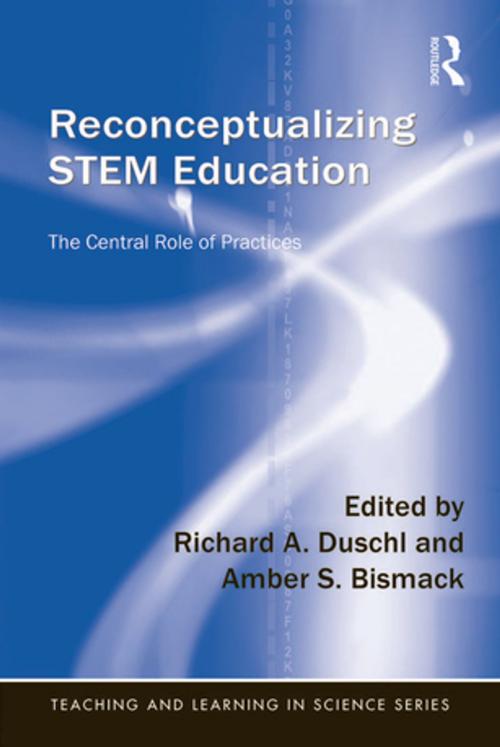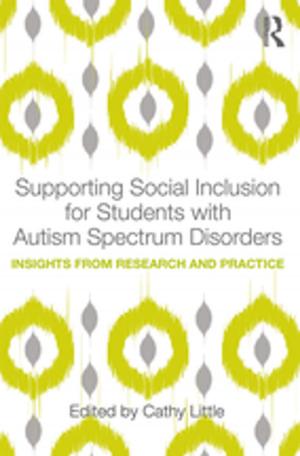Reconceptualizing STEM Education
The Central Role of Practices
Nonfiction, Reference & Language, Education & Teaching, Educational Theory, Curricula, Teaching, Teaching Methods| Author: | ISBN: | 9781317458500 | |
| Publisher: | Taylor and Francis | Publication: | January 8, 2016 |
| Imprint: | Routledge | Language: | English |
| Author: | |
| ISBN: | 9781317458500 |
| Publisher: | Taylor and Francis |
| Publication: | January 8, 2016 |
| Imprint: | Routledge |
| Language: | English |
Reconceptualizing STEM Education explores and maps out research and development ideas and issues around five central practice themes: Systems Thinking; Model-Based Reasoning; Quantitative Reasoning; Equity, Epistemic, and Ethical Outcomes; and STEM Communication and Outreach. These themes are aligned with the comprehensive agenda for the reform of science and engineering education set out by the 2015 PISA Framework, the US Next Generation Science Standards and the US National Research Council’s A Framework for K-12 Science Education. The new practice-focused agenda has implications for the redesign of preK-12 education for alignment of curriculum-instruction-assessment; STEM teacher education and professional development; postsecondary, further, and graduate studies; and out-of-school informal education. In each section, experts set out powerful ideas followed by two eminent discussant responses that both respond to and provoke additional ideas from the lead papers. In the associated website < http://waterbury.psu.edu/summit/> highly distinguished, nationally recognized STEM education scholars and policymakers engage in deep conversations and considerations addressing core practices that guide STEM education.
Reconceptualizing STEM Education explores and maps out research and development ideas and issues around five central practice themes: Systems Thinking; Model-Based Reasoning; Quantitative Reasoning; Equity, Epistemic, and Ethical Outcomes; and STEM Communication and Outreach. These themes are aligned with the comprehensive agenda for the reform of science and engineering education set out by the 2015 PISA Framework, the US Next Generation Science Standards and the US National Research Council’s A Framework for K-12 Science Education. The new practice-focused agenda has implications for the redesign of preK-12 education for alignment of curriculum-instruction-assessment; STEM teacher education and professional development; postsecondary, further, and graduate studies; and out-of-school informal education. In each section, experts set out powerful ideas followed by two eminent discussant responses that both respond to and provoke additional ideas from the lead papers. In the associated website < http://waterbury.psu.edu/summit/> highly distinguished, nationally recognized STEM education scholars and policymakers engage in deep conversations and considerations addressing core practices that guide STEM education.















